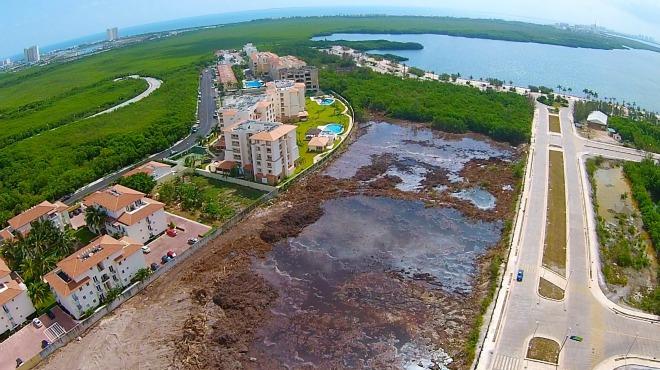The World Ocean Summit, an event exploring how to sustain an ocean economy, wrapped up last week in Bali, Indonesia and will be held next year in Mexico.
At the conference, the Global Mangrove Alliance lobbied for trying to restore the world’s mangrove habitats 20% by 2030. Why does this matter? Mangroves provide key benefits to society and are being lost at an alarming rate. On the current pace there will be no mangroves on earth in 100 years, and Mexico has the sixth largest habitat in the world.
Conservation International, The Nature Conservancy and World Wildlife Fund will work together to build a global alliance and leverage the expertise, funding, knowledge, resources, diverse skills and networks of all members to amplify existing efforts and increase attention to the critical role of mangroves in coastal ecosystems.
The Alliance is developing a work plan based on consultations with experts on the ground around the world. Projects will be expanded locally, regionally and globally with communities, governments and private sector leaders committed to halting and reversing mangrove forest loss, which already amounts to 50 percent of the world’s habitats over the past half century.
“People who live in and around mangroves benefit from their services but it’s important that people around the world realize the impact that mangrove habitats have on our planet,” said Maria Damanaki, Global Managing Director, Oceans at The Nature Conservancy. “The loss of these ecosystems could cause devastating effects to wildlife and humans alike and we need to start taking greater action now.”
Mangrove forests serve as a transition between marine and terrestrial environments, providing critical protection from the impacts of climate change including absorbing impact from wave energy and storm surges, adapting to rising sea levels and stabilizing shorelines from erosion. These forests also sequester and store atmospheric carbon, and thus play an important role in climate change mitigation.
“Mangrove ecosystems are incredibly productive and biologically diverse and they sustain coastal communities and fisheries,” said Brad Ack, senior vice president of oceans for World Wildlife Fund. “Mangroves are vital to people and the planet. These coastal forests provide critical habitat, protect shorelines and communities, sustain food security and mitigate against climate change.”
A short video and key news points can be found here.
Despite their critical importance for vulnerable coastal communities, roughly 1 percent of the world’s mangroves are destroyed each year. If this rate of loss continues, all unprotected mangroves could be lost in the next 100 years. There is work being done right now that is making a difference, but it’s not happening fast enough or at a scale that can overcome the continued annual rate of destruction.
“Mangrove habitats are crucial to the sustainability of coastal ecosystems, but are decreasing at a staggering rate,” said Greg Stone, Executive Vice President of Conservation International. “Having three well-established conservation groups initially coordinating the Alliance gives us an upper hand in restoring mangroves to a proper state of health in a shorter period of time.”
The Alliance recognizes the critical work already being done on mangrove conservation, restoration and resilience. That’s why its members will focus efforts on increasing awareness of the role of mangroves and global investments in coastal resilience and integrated coastal management. The Alliance will also prioritize work that builds the technical capacity necessary to successfully implement sound mangrove management and restoration.
For more information visit www.mangrovealliance.org or email [email protected].
Source: Global Mangrove Alliance



